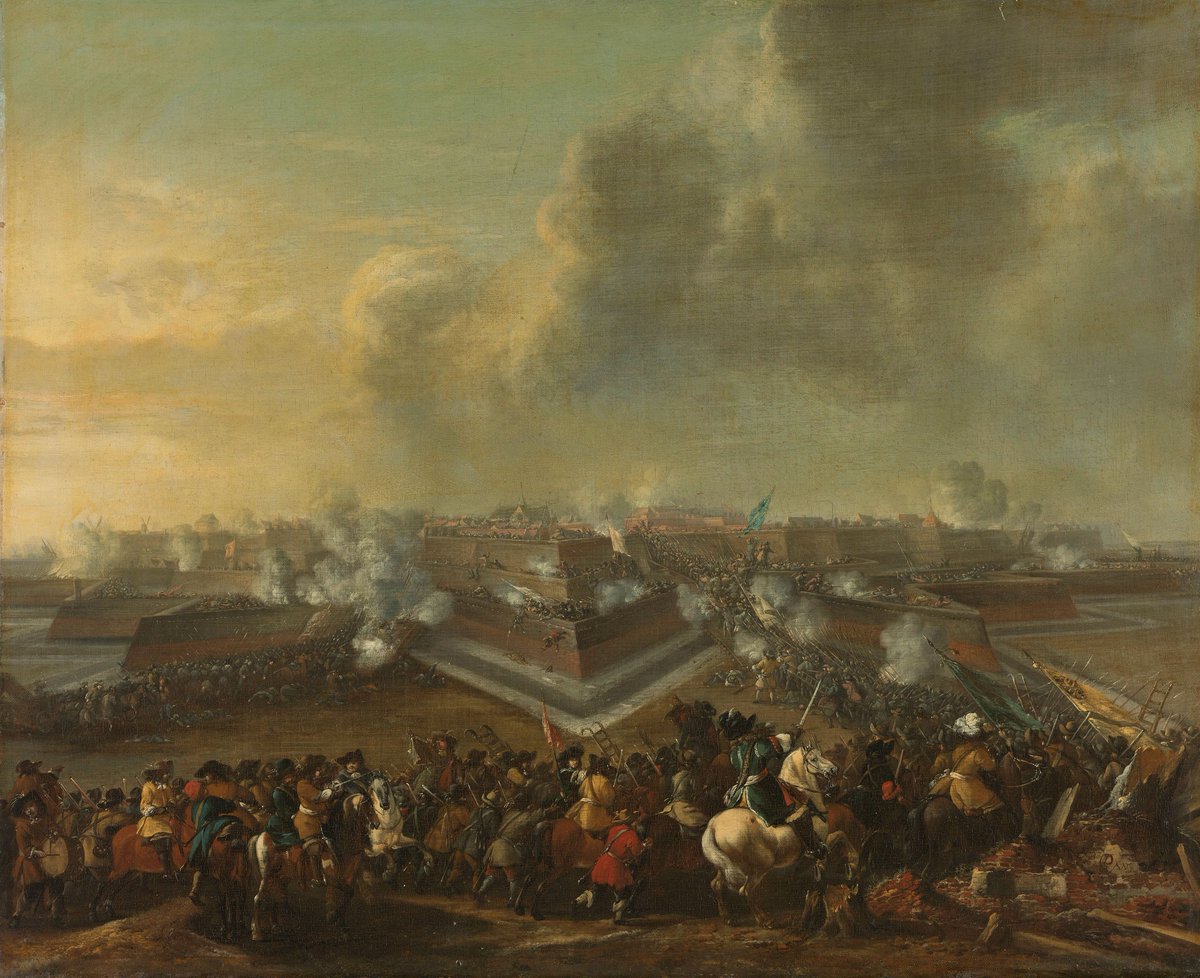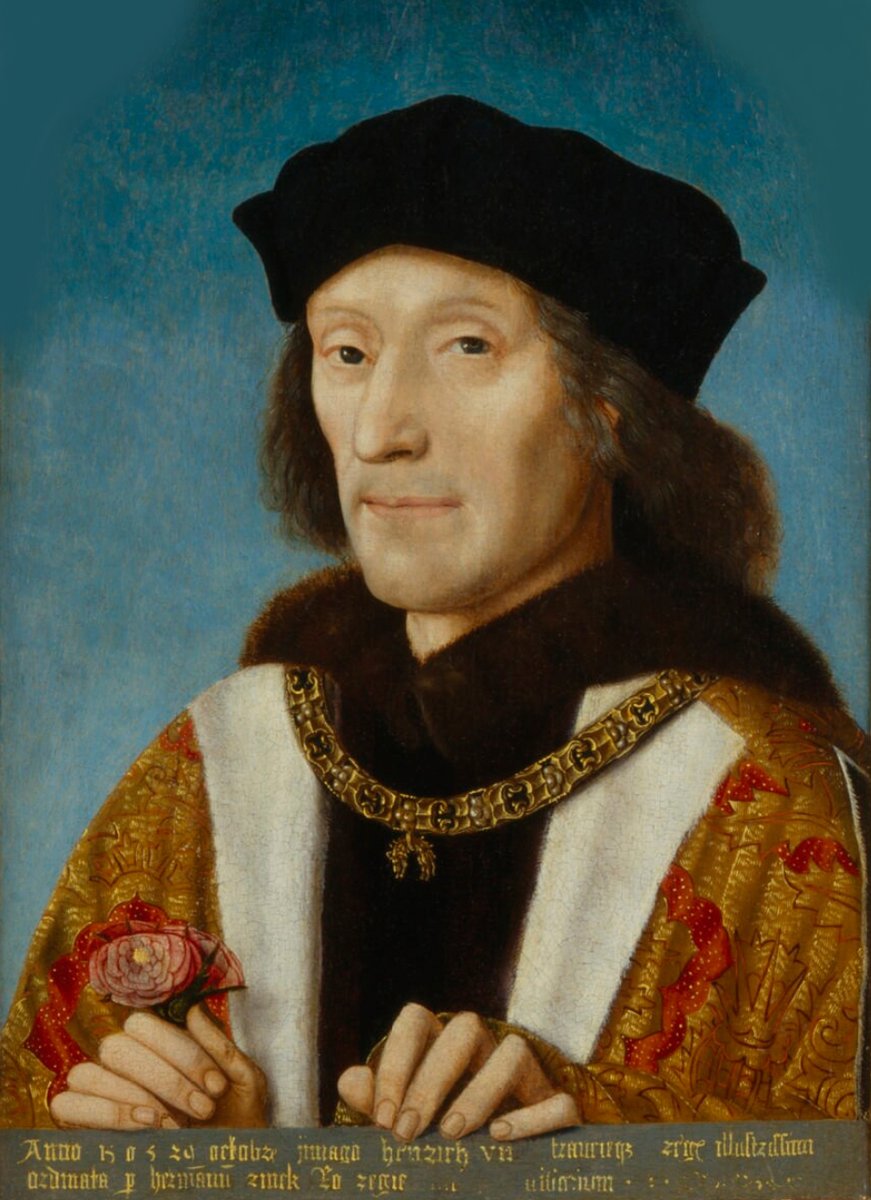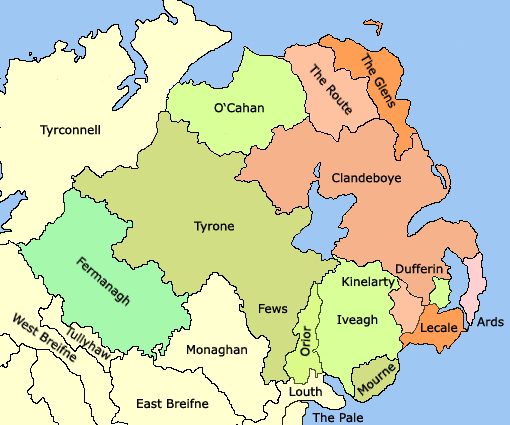
The year was 1415. Portugal had been reborn as a nation under João de Aviz and was looking to expand. With Iberia out of question, it set its sights on Ceuta in North Africa, then ruled by the Marinid Sultans of Morocco. 1/17 

Henrique, a younger son of João de Aviz, then funded the explorations further down the Atlantic. This led to the rediscovery and settlement of the Atlantic islands – Madeira (1418), Azores (1427) and Cabo Verde (1444). From there they tried to go around Africa to India. 2/17 

With the rest of Europe busy, Portugal spent the century exploring the seas. They reached River Senegal in 1445, Gambia in 1456, mouth of River Congo in 1482 and by 1487, Bartolomeu Dias had reached the Cape of Good Hope. 3/17 

In 1484, an Italian sailor came to meet the King of Portugal with an intriguing proposal – To cross the Atlantic and reach Asia going west. He was declined. He shopped around for funding – Spain, Genoa, Venice, England, but it remained elusive till 1491. 4/17 

This led to many expeditions westward. Portugal went east reaching India in 1498, Malacca in 1511 and developed a trading post in Macao in 1557. Spain and Portugal divided the world between them, with Spain in the west and Portugal in the east with a tip of Brazil. 5/17 

In 1580, Spain and Portugal united under one crown. In 1571, Spain had defeated the Ottomans for control of the western Mediterranean. But they were pressed in the seas by English privateers. An invasion of England by Spain in 1588 failed spectacularly. 6/17 

From 1568, the Dutch were in rebellion against their Spanish ruler. They started a publicly funded company, VOC* in 1602 to explore the seas and they targeted Portuguese colonies, many of which they gained. 7/17
(Not Variant of Concern)
(Not Variant of Concern)

Europe was embroiled in a war over religion, but England and France, to an extent, managed to stay out of it. Portugal broke away from Spain, with some French and English assistance. England also fought wars against the Dutch and the Spanish, gaining Jamaica. 8/17 

France was at its peak, but its focus was in Europe. It took till 1665 for France to start working on colonies. The Dutch had the most power in the seas, and the French broke their back in 1672; an year etched into Dutch history as Rampjaar, the disaster year. 9/17 

Total defeat was avoided by Willem of Orange, who later became King of England. Willem formed a pan European alliance against France, but France still stayed strong. But the French might fell apart in the next war, which was to decide who will rule Spain. 10/17 

By 1713, when the War of Spanish Succession ended, the colonial power of the Portuguese and the Dutch had been weakened, while the Spanish Empire was one for the history books. The French were making progress, while the British ate up former Portuguese and Dutch colonies. 11/17 

France saw gains in America and later in India with the French East India Company. The Eighteenth century again saw hectic military activity in Europe. When France and Britain were in the opposing sides, it was mirrored in the colonies as well. 12/17 

War of Austrian Succession (1740-1748) saw France and Britain in opposing sides, with Madras (Britain – India) and Louisbourg (France – Canada) briefly changing hands. But the Seven Years War (1756-1763) led to a more permanent loss of colonies for France. 13/17 

Spain exchanged the region they gained in America in 1763 (Louisiana) back to France in 1800 for spaces in Italy, and it was sold to US in 1803. Haiti gained its independence from France in 1804 and Spanish colonies in the Americas followed suit by the end of the century. 14/17 



It was only towards the end of the 19th century that Europe started to look at interior Africa, for colonisation with interest. The Scramble for Africa took around 30 years, as Europe waited for the collapse of the Ottoman Empire. 15/17 

Ireland, which England first laid claim for in 1177 and was progressively conquered over centuries, finally became independent after a short war from 1919 to 1921. India took a bit longer till the collapse of the British colonial empire due to the Second World War. 16/17 

After Second World War, most of the colonies in Asia and Africa became independent, though the British crown still retains rule over many nations. France, Netherlands, Spain, Portugal & US also retain minor possessions around the world as well. 17/17
https://twitter.com/Arby_K/status/1408430691692384264
• • •
Missing some Tweet in this thread? You can try to
force a refresh
















